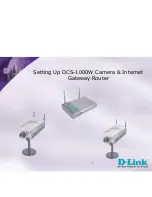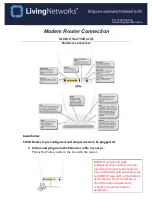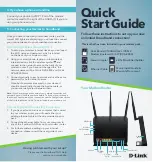
2-4
[Sysname] acl number 2000
[Sysname-acl-basic-2000] rule deny source 1.1.1.1 0
# Verify the configuration.
[Sysname-acl-basic-2000] display acl 2000
Basic ACL 2000, named -none-, 1 rule,
ACL's step is 5
rule 0 deny source 1.1.1.1 0
Configuring an Advanced IPv4 ACL
Advanced IPv4 ACLs filter packets based on source IP address, destination IP address, protocol
carried on IP, and other protocol header fields, such as the TCP/UDP source port, TCP/UDP destination
port, ICMP message type, and ICMP message code.
In addition, advanced IPv4 ACLs allow you to filter packets based on three priority criteria: type of
service (ToS), IP precedence, and differentiated services codepoint (DSCP) priority.
Advanced IPv4 ACLs are numbered in the range 3000 to 3999. Compared with basic IPv4 ACLs, they
allow of more flexible and accurate filtering.
Configuration Prerequisites
If you want to reference a time range to a rule, define it with the
time-range
command first.
Configuration Procedure
Follow these steps to configure an advanced IPv4 ACL:
To do…
Use the command…
Remarks
Enter system view
system-view
––
Create and enter
advanced IPv4 ACL view
acl number
acl-number
[
name
acl-name
]
[
match-order
{
auto
|
config
} ]
Required
The default match order is
config
.
If you specify a name for an
IPv4 ACL when creating the
ACL, you can use the
acl
name
acl-name
command to
enter the view of the ACL later.
Create or modify a rule
rule
[
rule-id
] {
deny
|
permit
}
protocol
[ {
established
| {
ack
ack-value
|
fin
fin-value
|
psh
psh-value
|
rst
rst-value
|
syn
syn-value
|
urg
urg-value
} * } |
destination
{
dest-addr dest-wildcard
|
any
} |
destination-port operator
port1
[
port2
] |
dscp
dscp |
fragment
|
icmp-type
{
icmp-type
icmp-code
|
icmp-message
} |
logging
|
precedence
precedence
|
reflective
|
source
{
sour-addr sour-wildcard
|
any
} |
source-port operator port1
[
port2
] |
time-range
time-range-name
|
tos
tos
|
vpn-instance vpn-instance-name
] *
Required
To create multiple rules, repeat
this step.
Note that if the ACL is to be
referenced by a QoS policy for
traffic classification, the
logging
,
reflective
and
vpn-instance
keywords are
not supported and the
operator
argument cannot be:
z
neq
, if the policy is for the
inbound traffic,
z
gt
,
lt
,
neq
or
range
, if the
policy is for the outbound
traffic.
Summary of Contents for S7902E
Page 82: ...1 4 DeviceA interface tunnel 1 DeviceA Tunnel1 service loopback group 1 ...
Page 200: ...1 11 DeviceB display vlan dynamic No dynamic vlans exist ...
Page 598: ...ii ...
Page 1757: ...4 9 ...
Page 1770: ...6 4 ...
Page 2017: ...2 11 Figure 2 3 SFTP client interface ...
Page 2238: ...1 16 DeviceA cfd linktrace service instance 1 mep 1001 target mep 4002 ...
















































